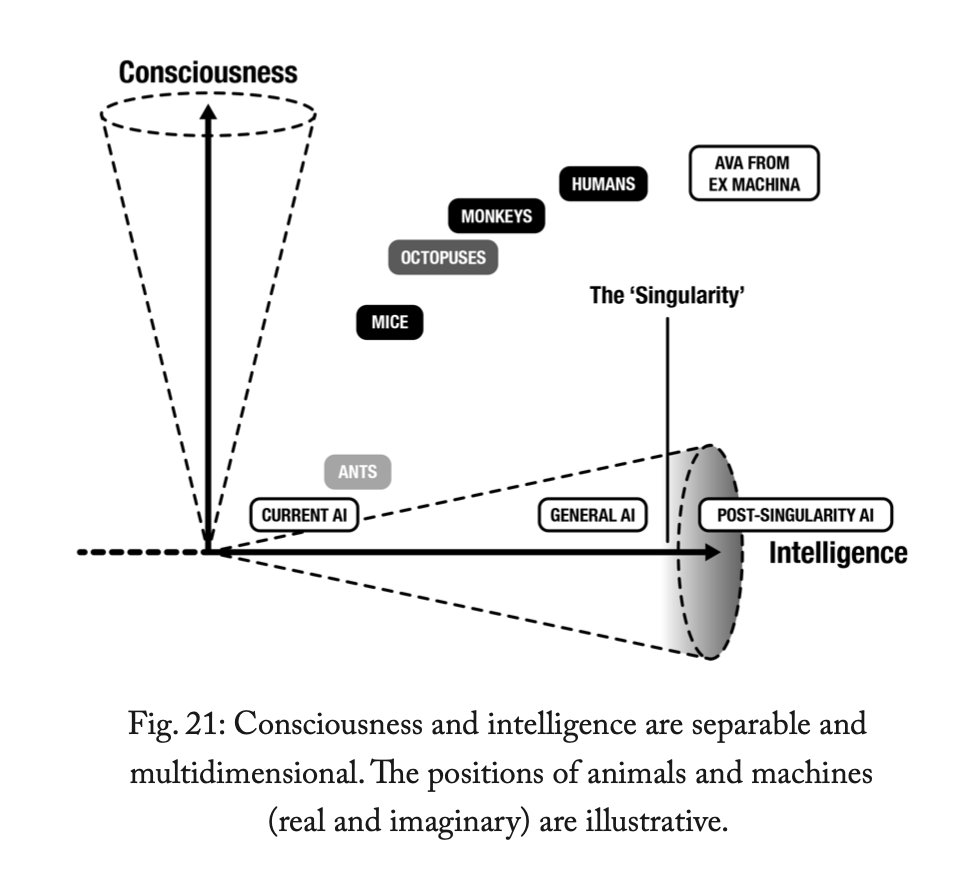
1/ A little late to the #LaMDA party, but here's my 2p for what it's worth 🧵. Basically, I agree with @GaryMarcus (& the vast majority of the AI/neuro community) that there is no reason whatsoever to believe that #LaMDA is conscious garymarcus.substack.com/p/nonsense-on-…
2/ #LaMDA is a highly impressive 'word sequence model' (h/t @rogerkmoore) which can give the impression of intelligent understanding, but it is a mistake to take this (variable) impression as evidence for actual intelligent understanding.
3/ In this sense, #LaMDA is fully in the tradition of previous chatbots, such as Eugene Goostman (b. 2014), for which grandiose claims were also made (both @GaryMarcus & I wrote about Goostman before, & the same points apply) neurobanter.com/2014/06/09/the…
4/ Gary's invocation of pareidolia is spot on. The way we project intelligence/consciousness into a word sequence model is very similar to the way we project faces into clouds, or burnt pieces of toast. en.wikipedia.org/wiki/Pareidolia
5/ I do differ a little from @GaryMarcus. Like the Google engineer who started the whole pallava, he seems to conflate claims about true intelligence with claims about consciousness/sentience: i.e., that evidence for 'true intelligence' would be evidence for sentience
6/ I don't think that's right. As I discuss in #BeingYou, intelligence and sentience are very different things - you don't have to be smart to suffer - and equating the two is another legacy of our off-the-rails human exceptionalism anilseth.com/being-you/ 

7/ IMO he's also a little unfair on Google's @blaiseaguera, who said “I felt the ground shift under my feet … increasingly felt like I was talking to something intelligent” in @TheEconomist - calling it "nonsense".
8/ But Blaise is just saying how LaMDA made him feel, not claiming it actually is intelligent/aware. And this is a crucial distinction, because we may increasingly live in a world where machines indeed seem to be intelligent or aware, & we need to learn how to live in this world
9/ The more we are distracted by fancy chatbots, the less time we'll have for the real problems in this area, namely (i) the disruptive potential of AI including its 'seeming to be' smart/aware; (ii) the ethical challenges of non-human animal sentience 

end/ ... and (iii) the nontrivial possiblity of farming artifical sentience in brain organoids, which do not appear remotely 'intelligent' cell.com/trends/neurosc… 

• • •
Missing some Tweet in this thread? You can try to
force a refresh











